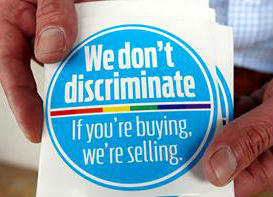BillDo Has A Totally Practical Solution to Zika
Looks like it’s time for another edition of Bill Donohue Is A Terrible Person.
The UN Office of the High Commissioner for Human Rights commented on the current Zika epidemic:
UN High Commissioner for Human Rights Zeid Ra’ad Al Hussein said Friday, adding that laws and policies that restrict access to sexual and reproductive health services in contravention of international standards, must be repealed and concrete steps must be taken so that women have the information, support and services they require to exercise their rights to determine whether and when they become pregnant.
So if women get to decide when they get pregnant, there’ll be fewer pregnant women with Zika, and thus fewer kids with microcephaly. Does that sound pretty reasonable to you? Yes? Well, that’s because you’re not a frothing anti-contraception dogmatist like BillDo.
The way he sees it (emphasis emphatically added):
Zeid wants restrictive abortion laws repealed. More than that, he is fuming over the notion that women are in charge of their bodies. They are not. Moreover, he smirks at the advice that women should delay getting pregnant. According to the High Commissioner such advice “ignores the reality that many women and girls simply cannot exercise control over whether or when or under what circumstances they become pregnant, especially in an environment where sexual violence is so common.”
Okay, back up to that “They are not” for a moment. Is that poor phrasing, or did Bill just say that women are not in charge of their bodies? And if the latter, is it safe to assume he means something abstract and nebulous like “all our bodies ultimately belong to Baby Jesus, and we’re just caretakers”, rather than a more concrete bit of horribleness like “men get to decide whether women get and stay pregnant”? (I mean, we know he endorses the “stay” part of that, but I don’t know to what extent he’s willing to say so out loud.)
Be that as it may, he continues:
Here’s some advice for Zeid. Number one, girls should not be getting pregnant, and it is his job to say so.
Okay so far. I’m curious to know how BillDo proposes to enable them to make this choice.
Second, women are not the powerless wimps that he says they are: they can, in almost all circumstances, control when to have sex and with whom.
Yes. In almost all circumstances (let’s say over 95%), women decide when and whether to have sex. The other cases are called rape.
Third, he needs to man-up and name those Latin American nations (those were the ones he was addressing) where rape is commonplace.
Oh, Jesus Mary-fucking Christ on a consecrated cracker! Is this really that hard to look up in the age of Google and Wikipedia? Here’s a chart of rape rates in Latin America. And here’s Wikipedia’s section on rape in Brazil, one of the countries currently worst-hit by Zika.
Whichever way you slice it, we’re talking about tens or hundreds of thousands of women whom BillDo dismisses with a wave of his in-almost-all-circumstances, women far more alive and breathing than the virgin Mary, the only woman he seems willing to protect.
Fourth, killing innocent persons is never a morally acceptable remedy for any disease. Fifth, he ought to be policing the U.N. instead of lecturing us about the wonders of abortion
For some reason, BillDo doesn’t mention that the document he’s complaining about isn’t a paean to abortion, but rather talks in more general terms about letting women control their bodies, including sex ed, medical services, and contraception, as well as (and preferably before) abortion.
But I guess none of that matters, because when women use contraception instead of abstinence, it makes Baby Jesus cry.
Still, I’d like to end on a positive note by treating Bill better than he would half the human population, and allow him to choose for himself whether or not to choke on a barrel of contraceptive jelly.

